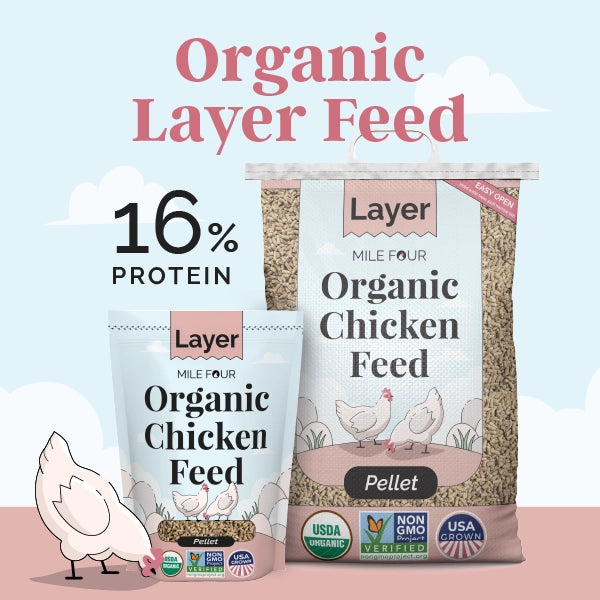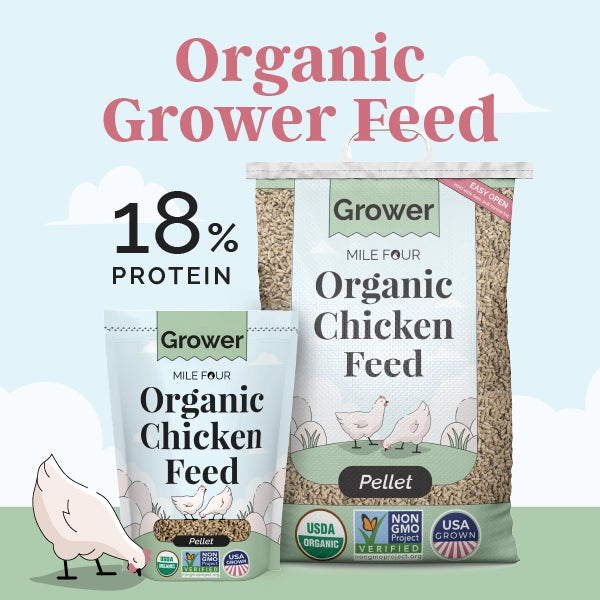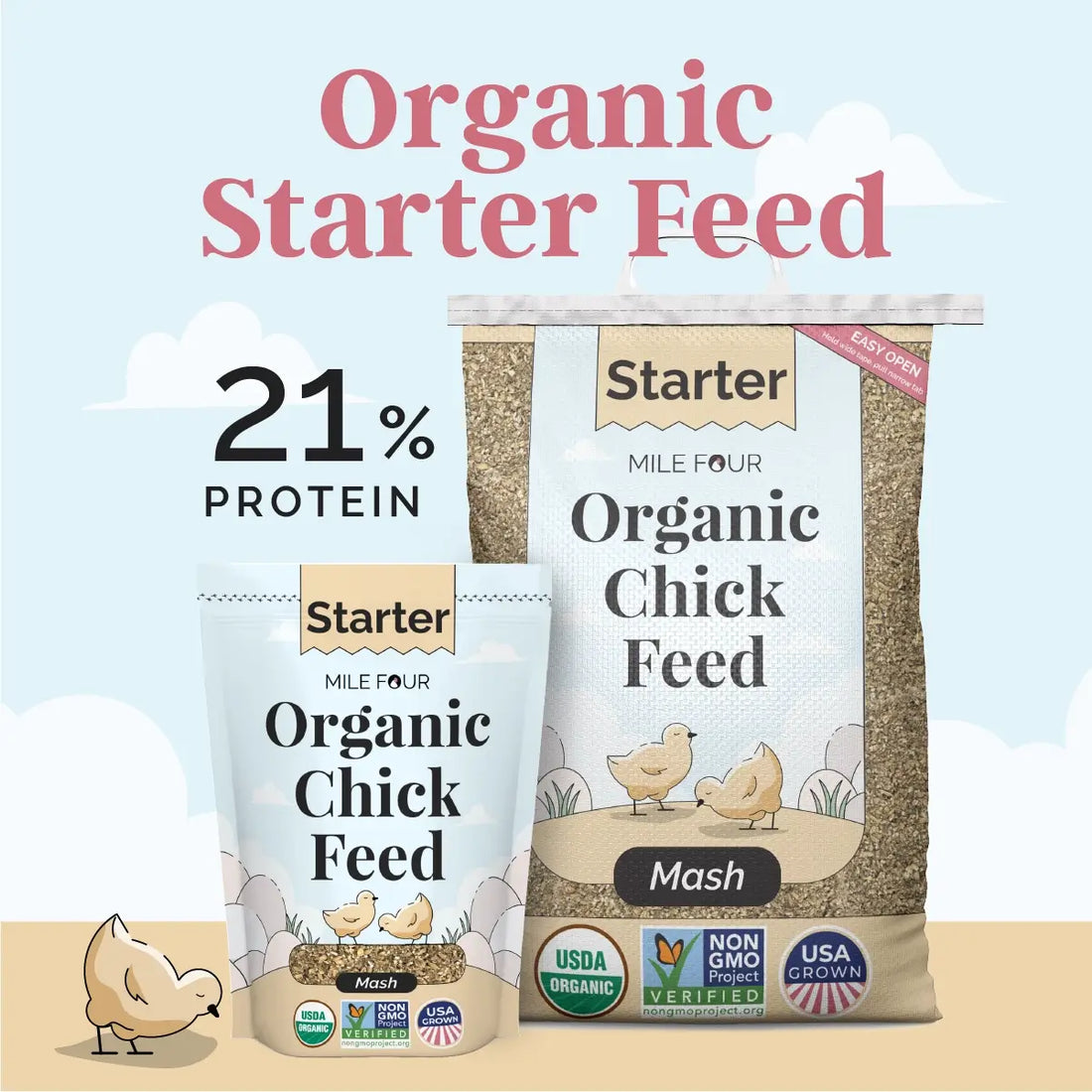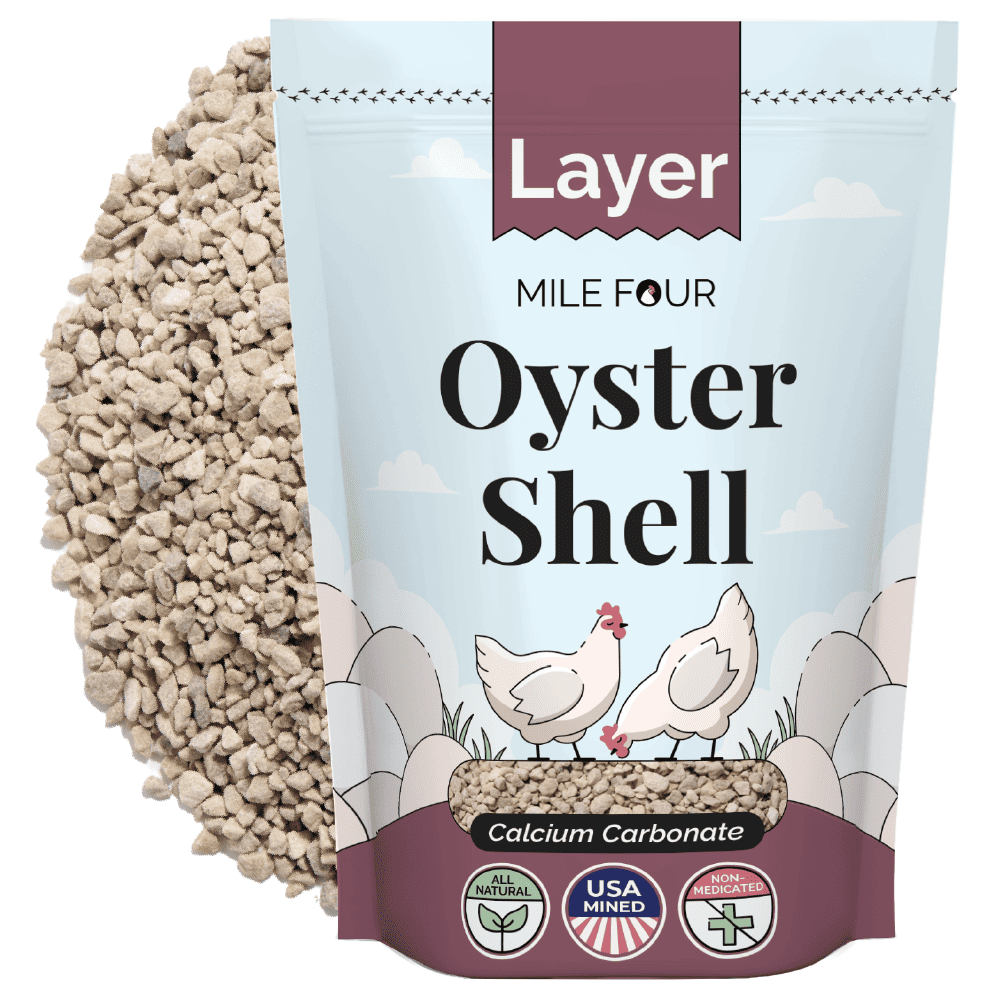Summer in the backyard flock world means early mornings, louder clucks, and more than a few side-eyes from hens annoyed by the heat. Chickens are remarkably adaptable—but that doesn’t mean summer is a breeze. From heat stress to egg spoilage to all the creepy crawlies that come out to play, this season requires a few smart shifts in your chicken-keeping routine.
Whether you’re new to the flock life or a seasoned chicken tender, this guide covers what matters most during the warmer months. Let’s help your hens beat the heat—and keep those eggs coming.
Chapter 1: Heat-Tolerant Chicken Breeds
Chapter 2: Summer Chicken Coop Setup
Chapter 3: Summer Nutrition & Hydration
Chapter 4: Pests & Parasite Prevention
Chapter 5: Summer Egg Care & Behavior
Heat Tolerant Chicken Breeds

Just like some people run hot or cold, so do chickens. Chicken breed matters when the mercury rises.
Mediterranean breeds like Leghorns, Minorcas, and Andalusians tend to handle heat best. They’re naturally leaner, have larger combs (which help release body heat), and carry less fluff. Easter Eggers and Rhode Island Reds are also good summer performers—they strike a nice balance of temperament and temperature tolerance.
Live somewhere humid or regularly hitting triple digits? These are your MVPs.

On the flip side, fluffier, heavier breeds like Brahmas, and Cochins—though delightful in the cold—can struggle during heat waves. If they’re part of your flock, be extra cautious with shade, hydration, and airflow.
🔍 Pro tip: Heat-tolerant doesn’t mean invincible. Any bird can overheat without the right setup. Keep reading.
Summer Chicken Coop Setup

Your coop should protect your chickens from predators, yes—but in summer, it also needs to breathe.
Ventilation is essential. Without it, heat and ammonia from droppings can build fast. Keep vents open high on the walls to let hot air escape while drawing cooler air in from below. And no, more insulation isn’t the answer this season—airflow > airtight.
Shade makes a big difference, too. Tarps, old sheets, and even hanging plants can shield the run from direct sun. Got a metal roof? Consider painting it white or adding an interior barrier to reduce heat transfer.
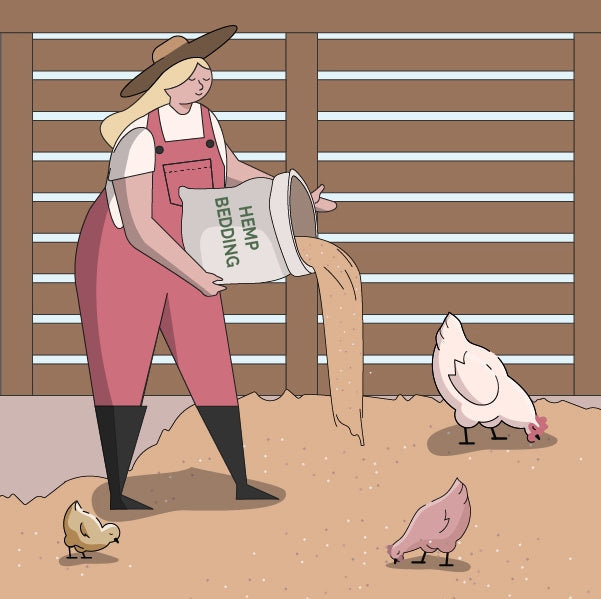
READ: Chicken Coop Bedding Guide
And when it comes to bedding, skip deep litter. Opt for clean, dry material like hemp bedding or sand. Hemp is naturally cooling, low in dust, and helps combat moisture—which makes it your best friend in both odor and pest control departments.
Summer Nutrition & Hydration

Hot weather? Chickens will let you know. Panting, wings outstretched, slow movements—it’s their version of flopping in front of a fan.
Water is non-negotiable. Chickens won’t eat if they’re dehydrated, and a drop in water intake can mean a drop in eggs, health, and energy. Refill waterers 2–3 times a day. Use wide bowls in addition to nipple drinkers for easy access, and keep everything shaded.

Want to cool things down further? Float ice packs or frozen water bottles in their waterer. Offer frozen watermelon cubes or peas in muffin trays. It's hydration + enrichment in one go.
When it comes to feed, keep it light and cool:
-
Serve layer mash or pellets in the morning or evening.
-
Wet mash or fermented feed = added moisture + improved digestion.
-
Skip midday feeding when temps are highest—chickens won’t be interested.
Consider electrolyte boosts in their water during heat waves (just like you’d drink Gatorade after mowing the lawn in July).
Pests & Parasite Prevention

Summer is prime time for things that bite, burrow, buzz, or otherwise bug your birds.
Warm, damp bedding can attract mites, lice, flies, and even rodents if you're not on top of cleaning. Flies love coop corners and soiled bedding. Mites? They party on your birds at night and hide in crevices during the day.
How to stay ahead of it:
-
Sprinkle a small amount of diatomaceous earth in bedding or dust baths.
-
Refresh roost bars with a peppermint oil spray (non-toxic and repels pests).
-
Scoop poop from under the roosts daily or line them with poop trays for easy cleanup.
-
Swap out bedding before it gets soggy or clumpy.
Chickens love a good dust bath—not just for fun, but for feather health and parasite defense. Make one using dry dirt, sand, and wood ash in a kiddie pool, old tire, or shaded pit.
Bonus: Watching them flop around like tiny dinosaurs in a spa is free entertainment.
Summer Egg Care & Behavior

Let’s clear up a common summer myth: more daylight doesn’t always mean more eggs.
Extreme heat can throw your flock off. Hens may lay fewer eggs, especially if they’re not drinking enough or battling heat stress. Don’t panic—it’s temporary.
To help:
-
Keep the coop cool and nest boxes shaded.
-
Collect eggs 2–3x daily to prevent spoilage or cracked shells.
-
Offer free-choice oyster shell for stronger shells.
And then there's the mid-summer molt surprise. Sometimes the stress of heat triggers early feather loss. During molting, your birds need more protein—offer scrambled eggs, black soldier fly larvae, or switch to higher-protein feed.
Lastly, don’t overlook summer boredom. Chickens spend more time under cover and less time exploring.

READ: Ultimate Chicken Feed Guide
Here’s how to break up the day:
-
Hang a cabbage head or corn cob for pecking.
-
Toss frozen treat balls (fruit + water) into the run.
-
Use treat-dispensing toys or even a chicken swing.
Think of it as enrichment for them… and a little less chicken drama for you.
Coop Calm, Flock Cool
Summer can be sweaty—but it doesn’t have to be stressful. With a few proactive changes, your backyard flock can breeze through the heatwaves, bugs, and laying dips like pros.
Stay shaded, stay hydrated, and don’t forget to grab your organic chicken feed, layer grit, & oyster shell to keep your setup in top form.


![Summer Chicken Care | Ultimate Guide [2025]](http://milefour.com/cdn/shop/articles/Chicken_Guide_for_Summer_6c6cb7d7-313b-4ec8-af67-0ae9bd853f4f.webp?v=1750427757&width=3000)
![Winter Chicken Care | Ultimate Guide [2025]](http://milefour.com/cdn/shop/articles/Mile_Four-Content-15_e1067340-1a72-4632-83f5-c66d9a2158d9.png?v=1765974101&width=1500)


